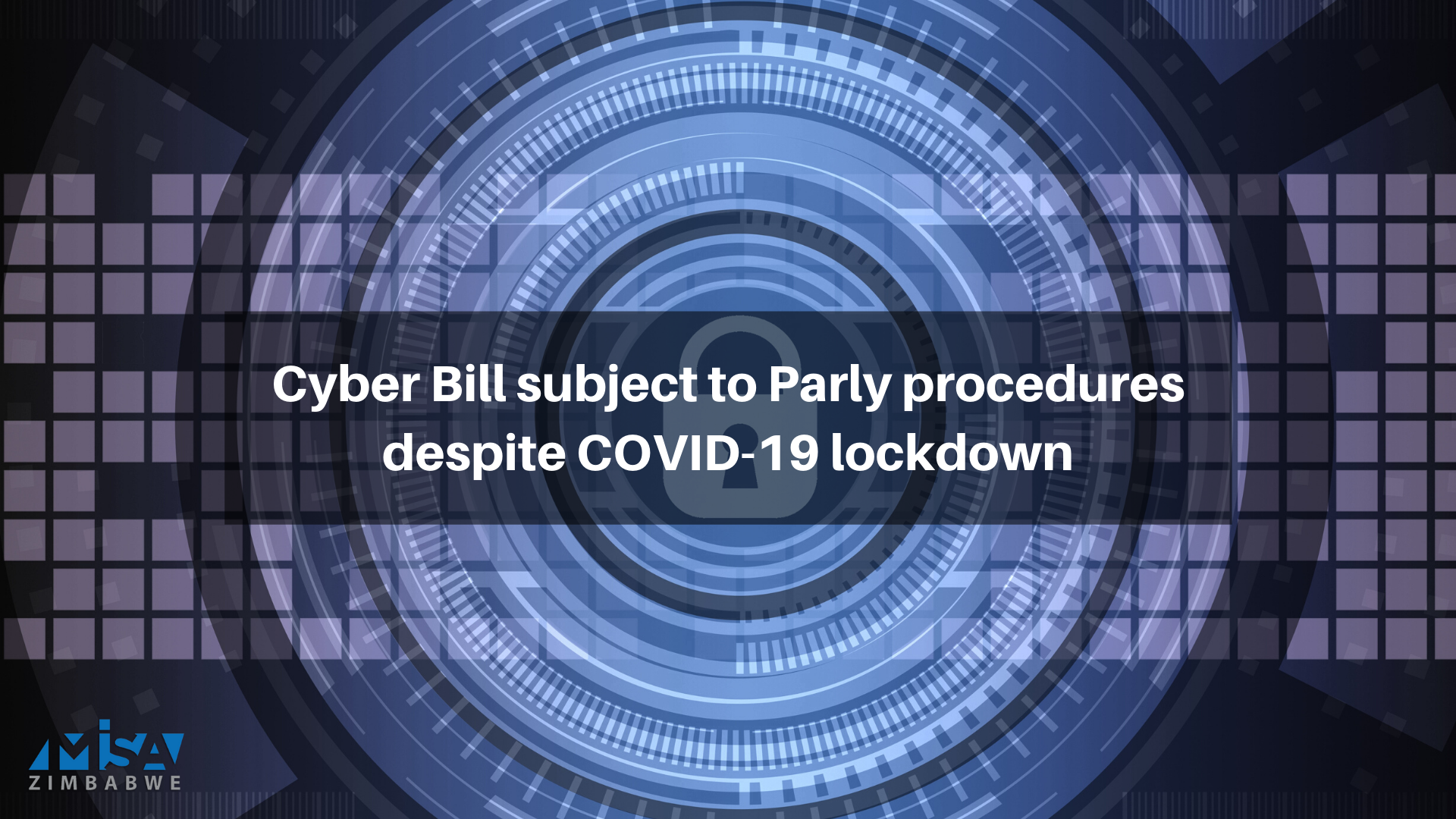The Parliament of Zimbabwe says it will adhere to requisite parliamentary processes following the gazetting of the Cybersecurity and Data Protection Bill notwithstanding the COVID-19 lockdown measures and restrictions.
The assurance by Parliament follows a letter written to Speaker of Parliament, Advocate Jacob Mudenda, by MISA Zimbabwe national director, Tabani Moyo, seeking information on the parliamentary processes that would be implemented following gazetting of the Bill taking into consideration the Coronavirus regulations.
Of particular interest to MISA Zimbabwe was whether the Bill would be subjected to public hearings to enable citizens and other key stakeholders to make submissions and input into the proposed law given the lockdown restrictions limiting gatherings to not more than 50 people.
Responding to MISA Zimbabwe in a letter dated 27 May 2020, Clerk of Parliament, Kennedy Chokuda, said parliament would “indeed” conduct public consultations on the Bill in line with Section 141 (b) of the Constitution.
“Rest assured that Parliament will make use of every available platform to consult the public, including but not limited to, the Parliament website, the institutional e-mail, Parliament’s social media, live radio public hearings and physical consultations with interested parties where practicable,” said Chokuda.
He said the schedule and medium of the consultations would be made public once the relevant Committee has finalised its itinerary.
The Clerk of Parliament, and on behalf of the Speaker, commended MISA Zimbabwe for its “avid interest” in ensuring that parliament subscribes to the constitutional requirement to consult all interested parties on any Bills before it.
Meanwhile, following the resumption of its sitting, Chokuda said, parliament was alive to the requirement for social distancing, provision of adequate screening facilities and sanitisers for MPs, its staff and members of the public that access the building.
“Parliament has thus resumed ‘normal’ business and functions within the parameters of the ‘new normal’ arising from the exigencies of the COVID-19 pandemic,” reads the letter to Moyo.
End









